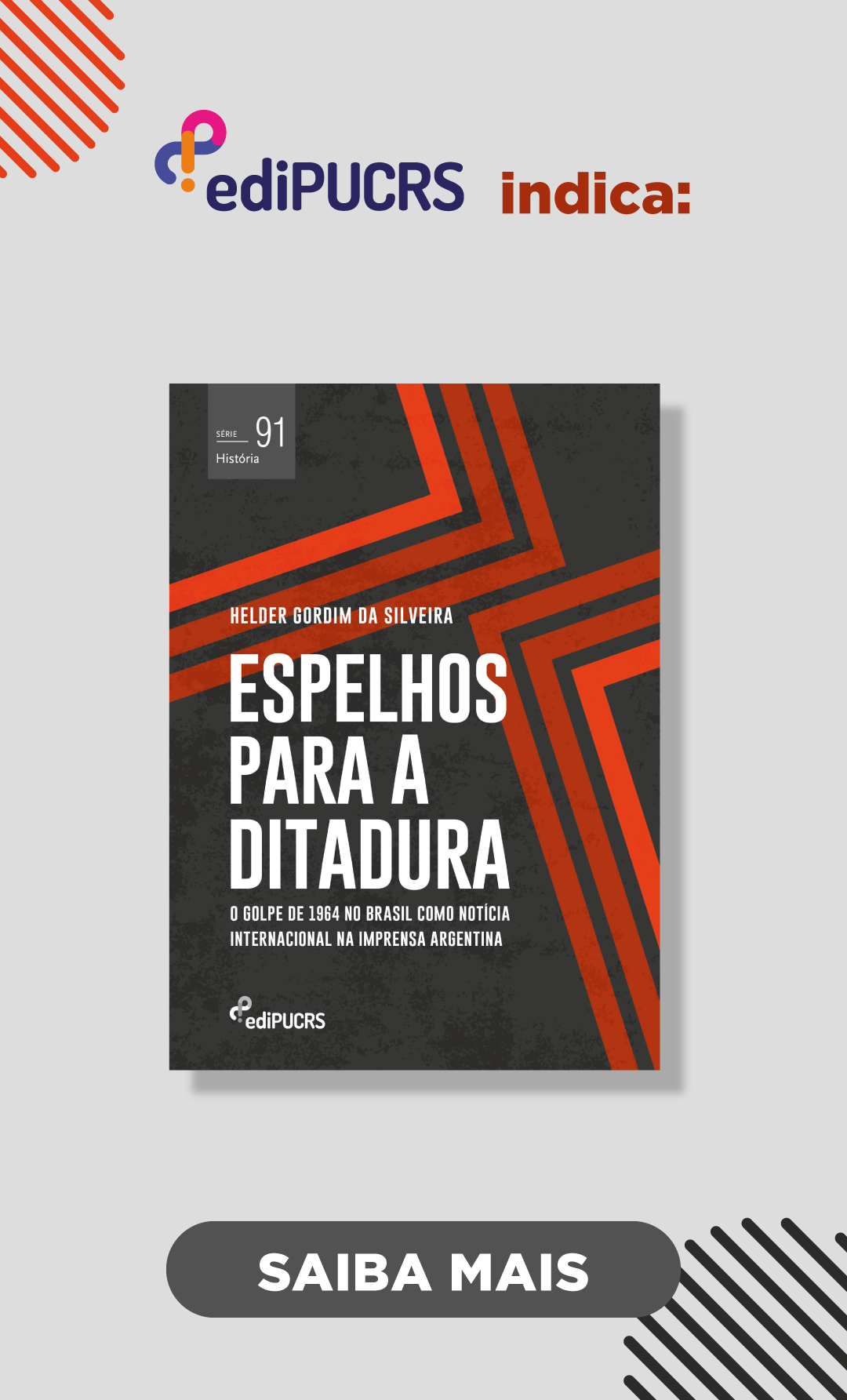The historicity of music, between regimes and scenes
The theoretical and methodological application of Jacques Rancière’s thought to the historical study of music
DOI:
https://doi.org/10.15448/2178-3748.2021.1.37559Keywords:
History, Music, Aesthetics, Rancière, JacquesAbstract
This article intends to introduce the theme of the historicity of music, starting from a theoretical-methodological approach based on aspects of the work of the French philosopher Jacques Rancière. The debate established by the author about the three regimes of identification of art – ethical, representative and aesthetical – as a way of thinking and demonstrating the historicity of literature and cinema, for example, can be applied to the analysis of the historicity of music. As we can deduct from the French author’s work, the main aspect to be considered for the historicity of a musical expression is not the “time”, “era” or “society” to which a musical expression would belong – using the “context” as a general basis to identify its historical specificity – but rather, the rationality present in the way in which the main elements of a musical expression are identified. In this rationality, the principles used in the interpretation are fundamental and, in turn, they lead to a historicity that conceives time/space not as a determining factor of a historical event, but the convergence of multiple temporalities in coexistence as its main characteristic, understanding the historicity of music out of static historical blocks. Throughout the article, brief examples of how the three regimes can be identified in broad debates regarding the historicity of music will be demonstrated and, at the end, a scene will be build, in order to perceive in an initially singular event – E.T.A. Hoffmann’s and Adolf Bernhard Marx’s critiques about Beethoven’s Fifth and Ninth Symphony, respectively – the confrontation of two regimes of historicity in art.
Downloads
References
ARISTÓTELES. A política. São Paulo: EDIPRO, 2009.
ARISTÓTELES. Poética. São Paulo: EDIPRO, 2011.
BEKKER, Immanuel. Aristotelis Opera. Berlim: Apud Georgium Reimerum, 1831. v. 2. Disponível em: https://archive.org/details/aristotelisopera02arisrich/page/n4. Acesso em: 26 fev. 2019.
BURNET, Ioannes [John]. Platonis Opera. Tomus IV. Oxonii [Oxford]: Typographeo Clarendoniano [Clarendon Press], 1902. Disponível em: https://archive.org/details/platonisopera01platgoog/page/n129/mode/2up. Acesso em: 3 abr. 2020.
FÉTIS, M. F. J. Symphonie avec Choeur Final Sur l’Ode à la Foie, de Schiller, pour grand Orchestre, Quatre Voix Solo et Choeur, par Louis de Beethoven (OEuvre 125.) Extrait de la Gazette Musicale de Berlin. Revue Musicale, Paris, Première Année, Tome I. Paris : Sautelet et Cie. 1827. p. 132 – 139. Disponível em: https://archive.org/details/revuemusicale1827pari/page/134/mode/2up. Acesso em: 3 abr. 2020.
HARTENSTEIN, G. Immanuel Kant‘s Sämmtliche Werke. Fünfter Band. Leipzig: Leopold Voss, 1867. Disponível em: https://books.google.com.br/books?id=ed4OAAAAIAAJ&pg=PP9&dq=HARTENSTEIN,+G.+Immanuel+Kant%27s+S%C3%A4mmtliche+Werke.+F%C3%BCnfter+Band.+Leipzig:+Leopold+Voss,+1867.&hl=pt-BR&sa=X&ved=0ahUKEwiDudv6iMzoAhUBd98KHf6aCQUQ6AEIXTAF#v=onepage&q=HARTENSTEIN%2C%20G.%20Immanuel%20Kant’s%20S%C3%A4mmtliche%20Werke.%20F%C3%BCnfter%20Band.%20Leipzig%3A%20Leopold%20Voss%2C%201867.&f=false. Acesso em: 3 abr. 2020.
HOFFMANN, E. T. A. O melófobo e a Quinta Sinfonia de Beethoven. São Paulo: Editora Clandestina, 2016. 79 p.
KANT, Immanuel. Crítica da faculdade do juízo. Rio de Janeiro: Forense Universitária, 2008.
KAWANO, Marta; CARVALHO, Bruno Berlendis de. E.T. A. Hoffmann e a música instrumental de Beethoven. Literatura e Sociedade: Departamento de Teoria Literária e Literatura Comparada/USP, São Paulo, n. 16, p. 108-131, 2012. Disponível em: http://www.revistas.usp.br/ls/article/view/64572/67214. Acesso em: 2 abr. 2020. https://doi.org/10.11606/issn.2237-1184.v0i16p108-131.
MARX, Adolf Bernhard. Recensionen. Symphonie mit Schlusschor über Schillers Ode an die Freude, für großes Orchester, vier Solo- und vier Chorstimmen komponiert von Ludwig von Beethoven. 125tes Werk. Mainz, Paris und Antwerpen bei Schotts. Partitur und Stimmen. Berliner Allgemeine Musikalische Zeitung, Berlin, Dritter Jahrgang, v. 22. n. 47. p. 373-378, Nov. 1826. Disponível em: https://archive.org/details/BerlinerAllgemeineMusikalischeZeitung1826/page/n467/mode/2up. Acesso em: 3 abr. 2020.
PEREIRA, Aires Manuel Rodeia dos Reis. A mousiké: das origens ao drama de Eurípides. Lisboa: Calouste Gulbenkian, 2001. 519 p.
PLATÃO. A República. Lisboa: Calouste Gulbenkian, 2001.
RANCIÈRE, J. A historicidade do cinema. Significação: Revista de Cultura Audiovisual, São Paulo, v. 44, n. 48, p. 245-263, 19 dez. 2017. Disponível em: https://doi.org/10.11606/issn.2316-7114.sig.2017.133369. Acesso em: 02 abr. 2020.
RANCIÈRE, Jacques; JDEY, Adnen. La méthode de la scène. Paris: Lignes, 2018.
RANCIÈRE, Jacques. A comunidade estética. Revista Poiésis, Niterói, n. 17: 169-187, jul. 2011. Disponível em: http://www.poiesis.uff.br/PDF/poiesis17/Poiesis_17_TRAD_Comunidade.pdf. Acesso em: 25 jun. 2014.
RANCIÈRE, Jacques. A partilha do sensível. São Paulo: EXO experimental org.; Ed. 34, 2005.
RANCIÈRE, Jacques. L’historicité du cinéma. In: DE BAECQUE, Antoine; DELAGE, Christian (org.). De l’histoire au cinéma. Paris: Compléxe, 1998. p. 45-60.
RANCIÈRE, Jacques. La méthode de l’égalité. Montrouge: Bayard, 2012.
SCHLEGEL, August Wilhelm von. [Vorlesungen] Ueber dramatische Kunst und Literatur. Zweiter Theil. Heidelberg: Mohr und Winter, 1817. Disponível em: https://books.google.com.br/books?id=78QCAAAAYAAJ&hl=pt-BR&source=gbs_book_other_versions. Acesso em: 3 abr. 2020.
WALLACE, Robin (org.). The Critical Reception of Beethoven’s Compositions by His German Contemporaries, Op. 125. Boston: Center for Beethoven Research/Boston University, 2017.
WALLACE, Robin. Beethoven’s Critics: aesthetic dilemmas and resolutions during the composer’s lifetime. New York: Cambridge University Press, 1986.
Downloads
Published
How to Cite
Issue
Section
License
Copyright (c) 2021 Oficina do Historiador

This work is licensed under a Creative Commons Attribution 4.0 International License.
Copyright
The submission of originals to Oficina do Historiador implies the transfer by the authors of the right for publication. Authors retain copyright and grant the journal right of first publication. If the authors wish to include the same data into another publication, they must cite Oficina do Historiador as the site of original publication.
Creative Commons License
Except where otherwise specified, material published in this journal is licensed under a Creative Commons Attribution 4.0 International license, which allows unrestricted use, distribution and reproduction in any medium, provided the original publication is correctly cited.





